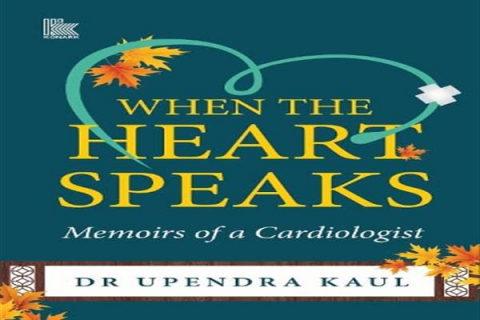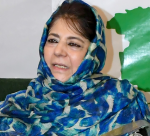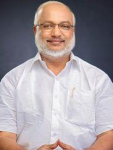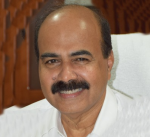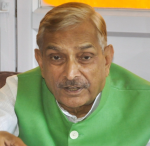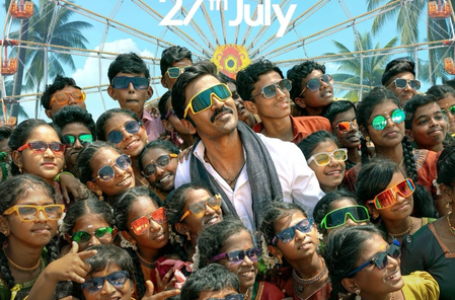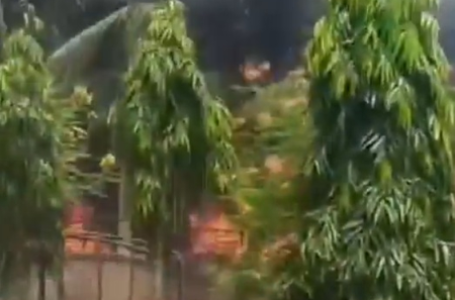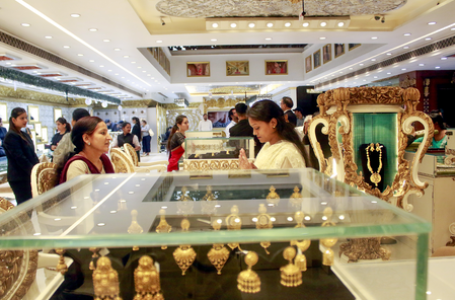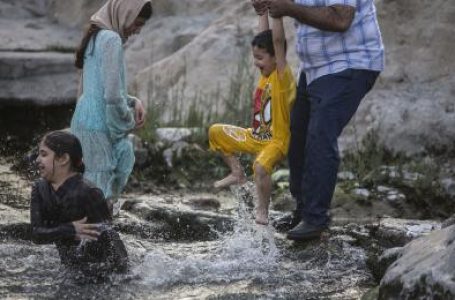
New Delhi: It is a rare tale indeed. It tells of the pull of the heart – to his calling in saving lives as a top cardiac surgeon, and the pull to his heart strings of Kashmir and its infinite beauty.
‘When The Heart Speaks’, a memoir by noted cardiologist Dr Upendra Kaul, is also notable for the revelations about the corporatization of healthcare by private hospitals, and the gradual dying out of the earlier ‘bedside’ deduction of ailments by doctors, thanks to increased reliance on modern medical technology.
Though Dr. Kaul spent his growing years in Delhi and studied and worked in the national capital, his heart always yearned to be in Kashmir. During his schooling and as a medical student, he would spend every vacation in Kashmir, playing with his cousins and neighbours in village Hawal, of Pulwama district. Once, while in Class 8, his parents forbade him to go to Kashmir as punishment for faring poorly in his exams. This was a most humiliating punishment for the young lad, who from then onwards studied so hard that he excelled in his studies, and was able to spend his holidays in his beloved land.
Dr Kaul, who was born in Hawal, also mentions an interesting fact about his family – how they had the surname ‘Khan’ despite being Kashmiri Pandits, and how his father and later other members changed it to Kaul and other such Pandit surnames.
Dr Kaul, who practised in AIIMS for many years, is one of the pioneers of non-surgical procedures on heart in India. He intertwines interesting facets of Kashmir’s history with tales of his growing up years and about the medical profession.
The reason why he was forced to quit AIIMS in 1996 is also telling; the salary paid to a top cardiac surgeon was so low that he had to borrow money from family and friends to pay for his daughter’s admission in a private medical college. In the private sphere while the money was good, Dr Kaul experienced the unpleasant aspect of the corporatisation of healthcare.
He tells of how, as Director Cardiology of Fortis, he was asked by the hospital’s finance head about the EBITA from his department. EBITA translates to ‘Earnings Before Interest Taxation and Amortisation’ which is a measure of financial performance of the department. Dr Kaul also is frank in speaking about how 20 percent of the bill for every test is funnelled back to the referring doctor.
Dr Kaul finally quit Fortis in 2017 and moved back to Batra Hospital, where he had worked for eight years after leaving AIIMS. In 2020 he launched the Gauri Kaul Foundation, named after his mother, and has been visiting the length and breadth of Kashmir Valley as part of his ‘No Heart Attacks Mission’ to offer free medical assistance to the poor and needy people. He has been visiting all the far-flung areas and organizing health camps.
The book has been published by Konark Publishers Private Limited. Dr Kaul is recipient of the Padma Shri and the prestigious Dr B.C. Roy Award for his contributions to Indian medicine.
In the 1990s, when Dr. Kaul was at AIIMS Delhi, a number of patients from the Kashmir valley would flock to him, and he would always take out time for them, even extending OPD timings and helping many with cash if they did not have money to pay for a pacemaker or other costly medical procedures. They flocked to Batra after he quit AIIMS, and followed him to Fortis later.
On Kashmiris, he writes: “I have always had a very soft corner for them. Most of them are very innocent and unaware of the tricks of the medical profession in big cities. I knew that they came all the way travelling a long distance having full faith in me and having limited budgets. There were several instances when they could not pay their entire bill and I used to help them by making payments on their behalf. The hospital billing section was very strict and would never allow the procedure to start unless an advance had been paid as per the tariffs. Invariably, I had to give assurance and undertaking on behalf of the patients for taking them for procedures.
“I remember a few of them coming with the balance money to me in my Srinagar OPD, which I used to visit usually once a month. On my refusing to take it, they would not insist but would get me my favourite Kashmiri vegetables, almonds or walnuts instead. We Kashmiri Pandits are very fond of vegetables grown in the valley, especially haakh (greens), sochal, nadroo (lotus stem), etc.”
In 2014, Dr Kaul built a house in Srinagar, naming it after his mother Gauri Manzil. In 2020, he started the Gauri Kaul Foundation and started holding health camps for heartcare regularly in far flung areas of the valley.
The camps are held with the motto ‘No More Heart Attacks by 2025’. The camps are organised with the cooperation of local authorities and the army and the foundation gets funds from many good Samaritans as well as through the corporate social responsibility (CSR) funds of organisations.



